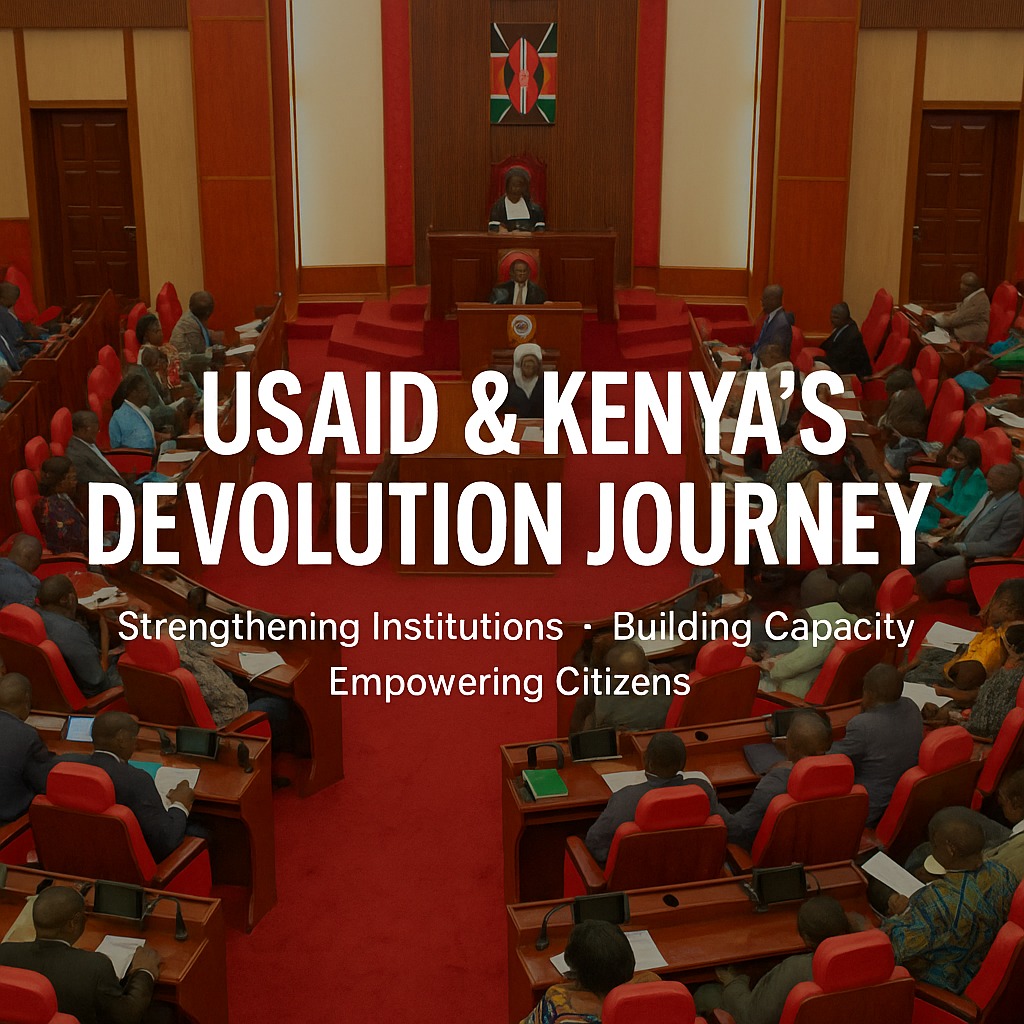When Kenya ushered in devolution in 2013, it was not just a political milestone but a massive institutional transition. Forty-seven newly created county governments suddenly became responsible for critical functions in health, agriculture, water, and local development. The challenge was formidable: counties needed structures, policies, laws, and trained personnel almost overnight.
USAID was among the first partners to step into this gap. Through the Agile and Harmonized Assistance for Devolved Institutions (AHADI) program, USAID worked with the Ministry of Devolution and at least 25 counties to lay down the early building blocks of county governance. AHADI’s support ranged from helping counties prepare their first and second generation County Integrated Development Plans (CIDPs) to drafting policies and laws aligned with the 2010 Constitution.
Equally important was capacity building. County leaders—including County Executive Committee Members, Chief Officers, Members of County Assemblies, and Directors—benefited from training on leadership, governance, and Public Expenditure Management (PEM). Mentorship covered budget processes, citizen engagement, and oversight—areas critical to ensuring public resources met community priorities.
AHADI also invested in strengthening public participation. Many counties were supported to domesticate public participation policies, ensuring citizens had a voice in planning and budgeting. This alignment of constitutional requirements with practical county processes was one of the most significant ways USAID helped counties to be both responsive and accountable. Special appreciation goes to former Chiefs of Party waceke wachira and Roselyn Mungai, and Deputy Chief of Party Alina Mutua for their leadership.
To deliver such an enormous task across so many counties — and with the urgency it demanded — AHADI assembled one of the most accomplished teams of professionals: economists, lawyers, accountants, governance and policy experts, and project managers. I was deeply honored to be part of this group. A special salute to the 60-strong AHADI PEM Mentors Group, whose expertise continues to shape Kenya’s political economy.
As AHADI phased out, the baton passed to other USAID programs such as the Mission Organizational Development Support (MODS) project, Africa Lead, the Resilience Learning Activity, and Inclusive Governance, Accountability, Performance, and Participation (IGAPP), among others. These initiatives deepened accountability, civic engagement, and intergovernmental coordination.
The results are visible today. Counties have improved their capacity to plan, budget, and deliver services, while citizens are increasingly engaged in demanding accountability. Kenya’s devolution story cannot be told without acknowledging USAID’s catalytic role in its early chapters.

Want to share with a friend?
Tags:
No responses yet